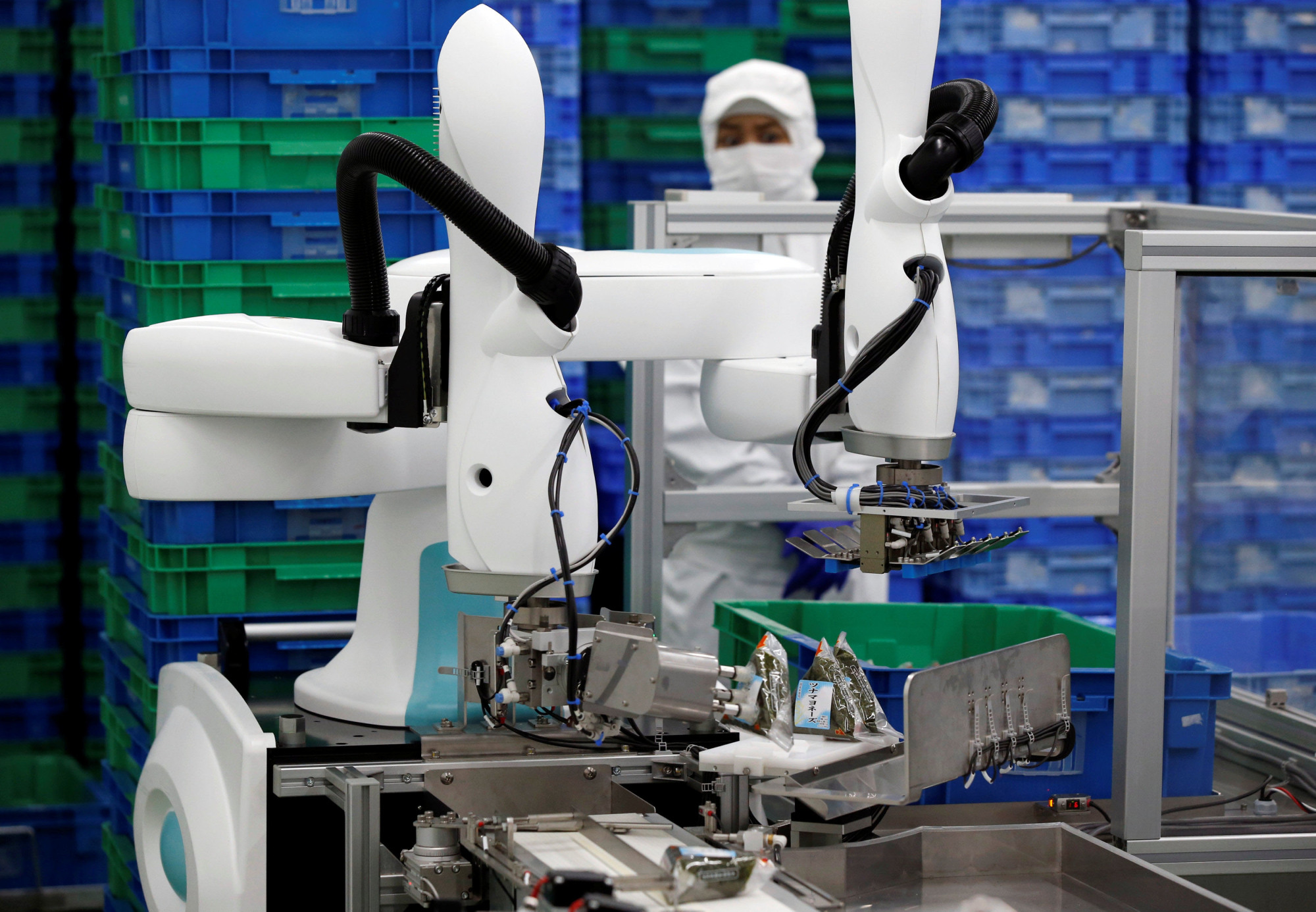A two-armed robot in a Chiba factory carefully stacks rice balls in a box, which a worker carries off for shipment to convenience stores. At another food-packaging plant, a robot shakes pepper and powdered cheese over pasta that a person has just arranged in a container.
In a country known for bringing large-scale industrial robots to the factory floor, such relatively dainty machines have until recently been dismissed as niche and low-margin.
But as the workforce ages in Japan and elsewhere, collaborative robots — or "cobots" — are seen as a key way to help keep all types of assembly lines moving without replacing humans.


















With your current subscription plan you can comment on stories. However, before writing your first comment, please create a display name in the Profile section of your subscriber account page.